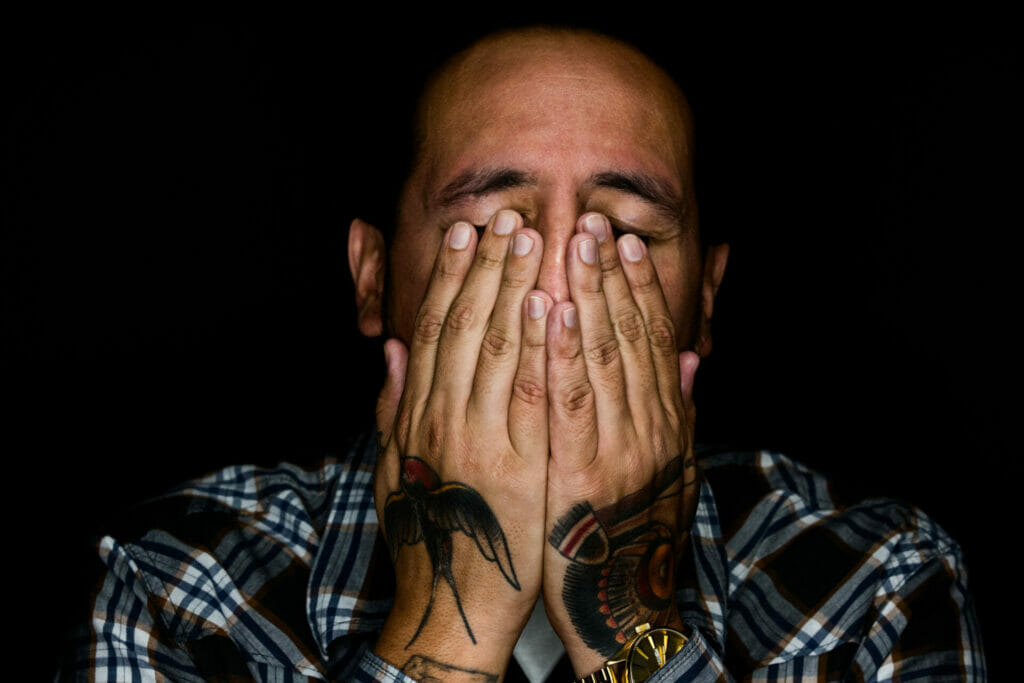Key Takeaway:
- It is important to understand suicidal ideations during addiction recovery, and recognize common causes and signs and symptoms of suicidal thoughts in oneself or others. This can enable effective treatment and coping strategies to be put in place.
- Effective treatment options for suicidal thoughts in addiction recovery include seeking professional help, such as cognitive behavioral therapy or dialectical behavioral therapy, for addressing and coping with suicidal ideations.
- Building a support system, practicing mindfulness, and engaging in self-care can be beneficial coping strategies for managing suicidal thoughts and emotions. Developing a relapse prevention plan and accessing professional support services can also aid in preventing suicidal behaviors and promoting a strong recovery.
Struggling with addiction can be overwhelming and seem insurmountable. But you don’t have to go through it alone. In this article, you’ll learn how to cope with suicidal thoughts when managing addiction recovery.
How to Address Suicidal Thoughts During Addiction Recovery
Dealing with suicidal thoughts can be incredibly challenging, especially during the difficult process of addiction recovery. As someone who has gone through this journey, I understand how important it is to have resources and support to help address these thoughts.
To address negative thought patterns during addiction recovery, we need to understand what it means to have suicidal ideations. In this part of the article, we’ll take a closer look at how to address these thoughts. We’ll begin by exploring the concept of suicidal ideations and understanding what it means. Then, we’ll examine some common causes of suicidal ideations among substance abusers, backed by facts and statistics from reputable sources. Finally, we’ll discuss the signs and symptoms of suicidal ideations in recovery, providing valuable information for individuals supporting loved ones in recovery. Check out this helpful resource on how to address negative thought patterns during addiction recovery.

Understanding Suicidal Ideations
Understanding Suicidal Ideations is crucial for anyone who wants to provide support or help to someone going through such thoughts. Suicidal ideation refers to the persistent and recurring thoughts of suicide, death, or self-harm that an individual experiences. It is important to remember that having suicidal thoughts does not necessarily mean the person will act on them, but it is a warning sign that they may need help.
To understand suicidal ideations, we must first acknowledge that mental health issues often contribute to such thoughts. Depression, anxiety, substance abuse disorders, trauma, and personality disorders are all common causes of suicidal ideations. These conditions distort an individual’s thinking patterns and make it difficult for them to cope with stressors in a healthy manner.
It’s important to note that suicidal ideations can also be a coping mechanism for some individuals who feel trapped in their current situation or overwhelmed by feelings of hopelessness. Such individuals may perceive suicide as their only way out of a painful situation.
Understanding the complexities surrounding suicidal ideation requires us to consider both psychological and biological factors. For instance, research shows that imbalances in brain chemicals such as serotonin can affect our moods and lead to depression, increasing the likelihood of suicidal ideations.
If you know someone struggling with suicidal thoughts during addiction recovery there are steps you can take to assist them. Encouraging them to seek professional support, offering a listening ear without judgment, helping them identify triggers/underlying issues would be helpful if done appropriately.
Next up – Let’s dive into common causes of these manifestations among substance abusers:
Common Causes of Suicidal Ideations Among Substance Abusers
Substance abuse is a severe issue that can lead to several consequences, including suicidal thoughts. Common causes of suicidal ideations among substance abusers include feeling hopeless, helpless, and trapped. Substance abuse also increases the risk of developing a mental health disorder such as depression or anxiety. These disorders can trigger suicidal ideations.
Several other factors contribute to suicidal ideations among substance abusers, making it an internal battle that needs to be addressed with care. People who abuse drugs or alcohol frequently feel like they have no control over their lives. This sense of helplessness often leads them to contemplate suicide as a way out.
These individuals are already fighting addiction and dealing with its side effects such as withdrawal symptoms and cravings. When they believe there is no hope for recovery, it compounds their issues and may make them feel like giving up altogether.
It’s a challenging task to identify the cause of suicidal ideations amongst those struggling with addiction, but doing so is vital in preventing suicide attempts from becoming successful. Early intervention through therapy and medication management aims at preventing deterioration in behavior patterns that may result in worse outcomes.
Pro Tip: If you or someone you know is struggling with addiction and has exhibited any signs of depression or suicidal thoughts, take action immediately by seeking help from medical professionals or reaching out to a support group dedicated to this topic.
“You don’t have to fight alone because together we got this.” – Next up; Signs and Symptoms of Suicidal Ideations in Recovery.
Signs and Symptoms of Suicidal Ideations in Recovery
Many individuals who are in addiction recovery experience suicidal ideations at some point during their journey. These thoughts can be incredibly overwhelming and can make it challenging for someone to focus on their recovery. It is important to understand the signs and symptoms of suicidal ideations in recovery so that loved ones and professionals can help individuals seek the proper care they need.
There are several signs and symptoms of suicidal ideations in recovery, including feelings of hopelessness or despair, an increase in substance use, self-harm behaviors, withdrawing from social activities or isolating themselves, talking about death or suicide, and giving away prized possessions. These may not appear all at once or be present in every individual; therefore, it is essential to monitor these signals and intervene immediately if needed.
Understanding the signs and symptoms of suicidal ideations involves being aware of any changes in habits or behaviors from a particular individual. Often those struggling with addiction face multiple challenges in addition to seeking treatment for addiction disorders on top of dealing with underlying emotional health issues.
If you or someone you know experiences suicidal ideations during the addiction recovery process, there are steps you could take to help them cope better through this phase. First is to communicate with the affected person about how they feel without invading personal boundaries. After which gently encouraging them to re-engage with their community social activities; sharing positive peer support stories will motivate them to realize that they are not alone on this journey.
Seeing someone close deal with such challenges during a vulnerable time like recovering from addiction can be stressful and scary. Fortunately, with a better approach towards communication while supporting them emotionally while ensuring they get professional counseling support sooner than later will limit possible long-term impacts associated with such life-threatening experiences.
Next up – let’s take a look at effective treatments available for addressing suicidal thoughts during addiction recovery!
Effective Treatment for Suicidal Thoughts
If you or someone you know is struggling with addiction, it can be incredibly challenging to look towards the future. When suicidal thoughts arise in the context of addiction recovery, it can feel like the weight of the world bears down on you. Despite how hopeless it may seem, there are effective treatments out there to help individuals overcome their addiction and address their suicidal thoughts.
In this section, we ll discuss some of the most evidence-based treatments for suicidal thoughts during addiction recovery, including:
- seeking professional help
- cognitive behavioral therapy (CBT)
- dialectical behavioral therapy (DBT)
These treatments have been proven to help those dealing with addiction to overcome suicidal ideation and move forward towards a brighter future.

Seeking Professional Help: What to Expect
When a person seeks professional help, they can expect to receive effective treatment for their mental health concerns. Seeking professional help is a significant step in addressing issues such as addiction and suicidal thoughts. Many people may feel hesitant to seek professional help and are unsure what to expect from the process.
Professional help generally involves counseling or therapy sessions with licensed mental health professionals. During these sessions, individuals can discuss their struggles and receive support and guidance on how to overcome them. The primary goal of seeking professional help is to provide individuals with the necessary tools and skills to manage their thoughts, emotions, and behaviors.
Additionally, seeking professional help provides a safe environment where individuals can express themselves without fear of judgment or repercussions. Mental health professionals are trained to listen actively, provide support, and help individuals develop strategies for managing their symptoms.
It is essential to keep in mind that seeking professional help is not a one-size-fits-all approach. Each individual’s situation is unique, and every therapist uses different techniques based on their training and experience.
I remember when I first sought professional help for my anxiety; I was unsure what to expect. However, I knew that I needed someone who could understand what I was going through and provide me with the right tools to manage it effectively. After finding the right therapist for me, I was able to work through my anxiety successfully and learn skills that have helped me cope better in everyday life.
Starting cognitive behavioral therapy (CBT) for addressing suicidal thoughts can be daunting, but trust me; it’s worth it!
Cognitive Behavioral Therapy (CBT) for Addressing Suicidal Thoughts
Cognitive Behavioral Therapy (CBT) is a form of psychotherapy that has been shown to be effective in addressing suicidal thoughts. CBT works by helping individuals identify and challenge negative thought patterns and beliefs that contribute to their suicidal ideations. By teaching patients healthy coping strategies, self-care skills, and practical problem-solving techniques, CBT can empower those struggling with suicidal thoughts to take control of their emotions and actions.
CBT is based on the premise that our thoughts, feelings, and behaviors are all interconnected. Therefore, when we change one aspect of our lives, such as our negative thought patterns or behaviors, it can have a ripple effect on our overall mental health. In the context of suicide prevention, this means that if we can help people identify and interrupt their negative thought patterns before they spiral out of control, we may be able to prevent them from harming themselves.
One technique used in CBT for addressing suicidal thoughts is called “cognitive restructuring.” This involves identifying negative automatic thoughts and beliefs (i.e., “I’m worthless,” “Nobody cares about me”) and challenging them with evidence-based reasoning (i.e., “That’s not true because X,Y,Z”). By learning how to identify and replace negative self-talk with more positive self-talk, patients can start to regain a sense of control over their thoughts and emotions.
Research has shown that CBT can be particularly helpful for individuals who struggle with both addiction recovery and suicidal ideation. According to an article published in the Journal of Substance Abuse Treatment, “CBT [has] been found to improve mood…reduce substance use…and decrease suicidal behavior in patients with co-occurring disorders.”
Studies have found that CBT is associated with significant reductions in suicide attempts among those at-risk for suicide. For example, a 2019 study published in the Journal of Consulting and Clinical Psychology found that adolescents who received CBT had significantly fewer suicide attempts than those who didn’t receive the therapy.
As I read about the effectiveness of CBT for addressing suicidal thoughts, I couldn’t help but wonder what other strategies might be useful in addiction recovery. With that in mind, I dove into researching Dialectical Behavioral Therapy (DBT) as a potential recovery strategy.
Dialectical Behavioral Therapy (DBT) as a Recovery Strategy
Looking for an effective therapy that helps individuals in addiction recovery? Dialectical Behavioral Therapy (DBT) could be the answer. DBT is a type of psychotherapy that aids individuals in their emotional and behavioral struggles, especially those struggling with trauma, depression, anxiety, and addiction.
The approach works by helping individuals identify and change negative thought patterns and behaviors that cause negative emotions. It combines cognitive-behavioral techniques such as problem-solving and mindfulness-based practices like meditation. The goal of DBT is to help erratic conditions stabilize while building healthy coping mechanisms and regaining control over one s life.
DBT involves one-on-one sessions with a trained therapist who specializes in DBT or group sessions lasting around 60-90 minutes. It is a comprehensive approach that focuses on four essential skill sets: mindfulness, distress tolerance, emotion regulation, and interpersonal effectiveness.
Most users say it’s more effective than other treatments since it readily adapts to address maladaptive behaviors without voiding the whole system or avoiding treatment altogether.
Research shows that DBT therapy has a high rate of success among people struggling with suicidal thoughts, self-harm tendencies, personality disorders like borderline personality disorder (BPD) or bipolar disorder II. It helps individuals accept themselves as they are while developing positive change through therapy at their own pace without feeling judged or rejected.
Want to try DBT for yourself? Consider finding reputable therapists near you who offer it as part of their suite of services so you can start your journey towards mental Health today! Now onto how to cope with suicidal thoughts…
Coping Strategies for Suicidal Thoughts and Emotions
When I was recovering from addiction, dealing with suicidal thoughts and emotions was something that I couldn’t escape. That’s why I’m excited to share some coping strategies to help navigate those dark moments.
In this section, we’ll discuss strategies for building a support system to lean on during recovery. We’ll also explore the benefits of practicing mindfulness for stress reduction and coping. And finally, I’ll share some tips and activities for engaging in self-care, which is an essential aspect of addiction recovery. These strategies have helped me through some of my toughest moments I know they can help you too.

Building a Support System for Recovery
When it comes to addiction recovery, one of the most important aspects is building a support system. This means surrounding oneself with people who are supportive, non-judgmental, and willing to help during the difficult journey of recovery.
A support system can be made up of friends, family members, medical professionals, or even support groups. It’s essential because it provides a sense of belonging and connection to those going through similar struggles. They understand how hard recovery can be and offer constant encouragement.
Building a support system works because it provides a network of people who can intervene before it’s too late. They can provide moral support when cravings strike or even call 911 if the situation requires an immediate intervention.
Interestingly enough, studies have shown that individuals with strong social support are more likely to achieve long-term success in their recovery efforts than those who do not. Support systems also help alleviate feelings of loneliness and isolation that often accompany addiction.
I once struggled with addiction myself and found great comfort in my sober friends group. I had hit rock bottom and was lost until I found this safe space where I could share my story without judgment. It was an environment conducive to my growth as individuals shared their battle stories every day.
Moving forward, mindfulness practice is another key tool for individuals struggling with suicidal thoughts during addiction recovery. So if you’re searching for ways to cope better; mindfulness may very well be your next best option!
Practicing Mindfulness for Stress Reduction and Coping
In today’s fast-paced world, stress is becoming an inevitable part of our lives. Practicing Mindfulness for Stress Reduction and Coping is a useful and effective technique to manage stress and its related symptoms. It helps us to be present in the moment by allowing us to focus on our breath and pay attention to our thoughts without getting lost in them.
Mindfulness meditation involves sitting quietly and focusing on your breath or a mantra for a fixed amount of time. Research suggests that mindfulness can have numerous benefits, including reduced anxiety and depression, improved emotional regulation, increased focus, and decreased physical symptoms of stress.
There are many ways to practice mindfulness, from mindful breathing exercises to walking meditations. While it may seem difficult to start practicing mindfulness at first, it becomes easier with regular practice. The key is self-compassion – being kind to yourself if your mind wanders during the practice.
One valuable tip is to integrate mindfulness into our daily routine instead of setting aside a specific time for it. We can take short breaks throughout the day to tune in with our body sensations or take deep breaths when feeling stressed.
In my experience, practicing mindfulness has helped me reduce my anxiety levels and control my thoughts. Whenever I feel overwhelmed, I close my eyes and focus on my breathing for some moments. This helps me become more focused and calmer after returning to work.
As I learned how mindfulness practices could help reduce stress levels in everyday situations like exams or interviews, I was intrigued by other ways I could improve my mental health during tough times. Incorporating self-care activities also became a mission that led me to explore new techniques through Engaging in Self-Care: Activities and Tips for Recovery…

Engaging in Self-Care: Activities and Tips for Recovery
Engaging in self-care is an essential part of any recovery process, and when it comes to addiction and suicidal thoughts, it becomes even more critical. Activities and tips for recovery are necessary for individuals to learn how to take care of themselves mentally and physically. Self-care measures may make the difference between a relapse or continued sobriety.
The following three points explain what engaging in self-care means:
- Self-Care Activities: Engaging in activities that promote a sense of peace and relaxation, such as meditation, yoga, exercise or hearing uplifting music can significantly improve one’s mental health.
- Routine Maintenance: Practicing proper hygiene or getting adequate sleep on a regular schedule is also essential components of self-care.
- Mental & Emotional Support: Reaching out to family members or friends with whom you feel comfortable sharing your thoughts can provide much-needed support.
While these activities may sound simple, implementing them plays a significant role in maintaining physical and mental wellbeing as they improve one’s mood and increase energy levels.
In addition, during times when drug cravings become unbearable, participating in specific activities such as playing sports or painting may help reduce the urge to relapse into addiction.
Fear of missing out on the willpower gains enjoyed by those who engage in self-care habits should motivate individuals to adopt these practices immediately. Participating in just one activity daily over time helps build healthy routines.
Next up: When it comes to managing drug use cravings resulting from suicidal thoughts or emotions during addiction recovery, taking steps towards Relapse Prevention Strategies is crucial.
Relapse Prevention Strategies for Suicidal Thoughts and Behaviors
As someone who has struggled with both addiction and suicidal thoughts, I know firsthand how important it is to have a solid plan for relapse prevention. In this portion of the article, we’ll discuss some effective strategies for preventing relapse in the face of suicidal ideation. We’ll start by exploring how to identify triggers and high-risk situations that may lead to relapse.
We’ll also discuss the tools you need to develop a comprehensive relapse prevention plan during addiction recovery. Finally, we’ll take a look at how support groups and other resources can help you stay on track and achieve a stronger, more sustainable recovery.

Identifying Triggers and High-Risk Situations
Identifying triggers and high-risk situations is a critical element in preventing relapse when dealing with suicidal thoughts and behaviors during addiction recovery. This process includes recognizing the events, places, or people that might trigger negative emotional responses or increase the risk of suicide.
Identifying Triggers and High-Risk Situations can be approached in four points:
- Identifying patterns: By analyzing past experiences of suicidal ideation, people can identify certain patterns that lead to these thoughts.
- Understanding the triggers: People in recovery should keep track of their emotions and circumstances that increase suicidal tendencies.
- Recognizing high-risk situations: Certain situations such as loss of a job, relationship breakdowns, or major life transitions can become high-risk scenarios for someone prone to suicidal ideation
- Developing coping strategies: Learning how to cope with difficult situations without turning to substance abuse is key to preventing relapse and managing negative thoughts effectively.
Many addiction recovery programs focus on identifying triggers through cognitive-behavioral therapy (CBT) or mindfulness-based stress reduction techniques (MBSR). These programs help people recognize how their thoughts affect emotions and behavior while developing coping mechanisms to manage stressors without resorting to drugs or alcohol.
According to the National Alliance on Mental Illness (NAMI), approximately 90% of those who die by suicide have an underlying mental health disorder. Identifying specific mental health disorders related to suicidal tendencies may include disorders like depression, bipolar disorder, schizophrenia, PTSD can assist in identifying potential triggers and reducing risks of recurrence.
As I learned first-hand during my addiction recovery journey, you must develop a robust relapse prevention plan in place. In the next section, we delve into ways you can prepare your personalized plan by setting realistic goals; it s power-packed!
Developing a Relapse Prevention Plan in Addiction Recovery
Developing a relapse prevention plan in addiction recovery is crucial for individuals seeking to overcome their addiction. It involves identifying potential triggers and developing strategies to cope with them to prevent a relapse.
To develop a relapse prevention plan, here is a 6-step guide that can be followed:
- Identify triggers – Think about situations, people, emotions or anything else that makes you want to use drugs or alcohol.
- Develop coping mechanisms – Identify healthy ways of dealing with these triggers such as deep breathing exercises or reaching out to trusted friends and family members.
- Create an action plan – Write down your coping mechanisms and keep them with you at all times. This will remind you of the things you need to do when triggered.
- Seek professional help – Reach out to professionals trained in addiction recovery who can offer guidance and support in developing an effective plan.
- Evaluate progress – Regularly evaluate your progress, reassess your triggers and coping mechanisms, and make necessary changes.
- Make adjustments – Modify the action plan as necessary when new triggers emerge, or if previous strategies are no longer effective.
Developing a relapse prevention plan also involves using resources available to assist in recovery. For instance, Alcoholic Anonymous (AA) sponsors can offer support during treatment meetings. Additionally, National Council on Alcoholism and Drug Dependence (NCADD) calls-to-action provide valuable information on safety tips while medicating prescriptions that one needs to take seriously.
Utilizing Support Groups and Resources for a Stronger Recovery
Utilizing Support Groups and Resources for a Stronger Recovery is an essential aspect of addiction recovery. When it comes to addiction, be it drugs, alcohol or any other substance, the journey to overcoming it can be challenging. It requires adequate time and effort to get through the rough patches, and support from others is crucial in achieving a lasting recovery.
Firstly, utilizing support groups can provide immense benefits by serving as an ally in the journey towards sobriety. These groups bring together individuals who share similar struggles and are committed to maintaining their sobriety. They provide a sense of community and allow individuals to share their experiences and feelings with others who understand them.
Secondly, resources such as addiction recovery helplines, crisis hotlines, informative websites and online forums offer additional opportunities for knowledge acquisition and help-seeking behaviors. They can provide tips on how to manage specific triggers that may make someone want to relapse or ways of coping with anxiety before seeking professional help, which we will examine later.
Thirdly, utilizing professional rehab facilities with specialized programs that cater only to people with addiction problems helps in receiving specialized care. The mutual aid group (12-steps) program has helped millions of addicts worldwide overcome crippling addictions successfully.
Finally, while every form of supportive care has its unique benefits; having friends and family involved in recovery efforts is pivotal because they understand you more than anyone else.
It’s important to note that Utilizing Support Groups & Resources is vital for all stages if the process – from detoxification (physical withdrawal processes,) transitioning (finding a stable home) treatment maintenance (mentally preparing ourselves) relapse prevention (developing coping mechanisms), etcetera all facets ought not be underestimated.
For instance, I was a tobacco smoker for a decade; smoking had such an impact on my life. Trying to quit several times was always met with failure, but one day, in 2015, I came across a support group, Nicotine Anonymous where there were people that shared addiction and relapse stories similar to mine.
Thereafter, joining the group birthed new relationships ushering the beginning of the journey to cumulative recovery. I have been clean ever since.
So let’s call a spade a spade; we need each other for stay motivated during our commitment towards sobriety. The lesson here is that success breeds from solidarity and as individuals’ willingness to seek aids from pertinent bodies- both individual and institutional will play a significant role.
As they say, “you can’t overdose on helping others,” Utilizing Support Groups and Resources offer us just that opportunity.
Next up ‘Seeking Help: Knowing When to Ask for Professional Support,’ Get ready folks, It’s time you learn when it’s necessary to call for back-up.
Seeking Help: Knowing When to Ask for Professional Support
As an addiction recovery advocate, I know firsthand how overwhelming and isolating the journey to sobriety can be. For those struggling with addiction, suicidal thoughts may arise, making recovery feel even more challenging. Seeking professional support is a crucial step in addressing these difficult thoughts and feelings. In this section, I ll be discussing different ways to recognize the need for professional support and how to access it. We ll be exploring:
- Hotlines for immediate intervention
- Online resources and communities
- Professional support services for addiction recovery
Let’s get started on the pathway to healing.

Accessing Crisis Hotlines for Immediate Support and Intervention
Accessing Crisis Hotlines for Immediate Support and Intervention is crucial when dealing with suicidal thoughts during addiction recovery. It provides an immediate response to those who might be in need of immediate help or support. Crisis hotlines work by providing counseling services to individuals experiencing depression, anxiety, or other forms of mental distress.
These hotlines also offer crisis intervention services, which may include suicide prevention, substance abuse assistance, and emergency medical attention. With the growing number of people needing assistance for addiction and mental health issues, crisis hotlines have become increasingly important as they provide access to professional help 24/7.
Moreover, these crisis hotlines are equipped with trained professionals who can offer individuals with coping mechanisms and intervention techniques that can assist them in managing any negative emotions they may be experiencing. If you are struggling with depression during addiction recovery, it is important to know how to manage and address suicidal thoughts as well.
If you or someone you know is struggling with addiction and mental health issues and needs prompt assistance, do not hesitate to reach out for help. Help lines like these are available across the globe and can make a tremendous difference. They offer a safe place to talk about your feelings without being judged and can provide information on how to get additional support both locally and online.
Don’t wait until it’s too late; reaching out for support could save your life. Please remember that there is always hope, and things can change even when it seems unbearable at the moment.
Next Up: Finding Online Resources And Communities For Recovery Support? Don’t think twice before connecting!
Finding Online Resources and Communities for Recovery Support
Recovery from addiction can be a long, difficult journey that requires support and guidance. One of the ways to find such support is through online resources and communities. These platforms can provide helpful tools, information, and connections to others who are also on the path to recovery.
‘Finding Online Resources and Communities for Recovery Support’ works by bringing together people who share similar struggles and aspirations. These platforms offer a safe space for sharing experiences and encouraging one another. They can include forums, chat rooms, websites, apps, or social media groups where people with addiction issues congregate.
The reasons behind the success of ‘Finding Online Resources and Communities for Recovery Support’ are multifaceted. Firstly, they allow individuals to access support from anywhere at any time without geographic limitations or constraints of schedules. Secondly, they create a sense of belongingness by connecting individuals with like-minded beings which foster healthy social bonds; as loneliness and disconnection often accompany addiction-related afflictions. Thirdly, online resources give access to credible sources of information, personalized plans based on individual needs, therapies- all integrated i.e., availing multiple programs at a click – this saves time, money improves recovery rates in addition to fostering strong connections with others.
A valuable feature of the online recovery community is that one can choose whether to remain anonymous or not while accessing help. Anonymity allows individuals who may feel shame or embarrassment about their situation to feel more comfortable sharing openly about their struggles without fear of judgment. Moreover, many recovering addicts prefer online interaction rather than face-to-face meetings due to privacy concerns or hectic schedules.
An inspiring example is when Jennifer Merschdorf met her fellow sobriety seeker Yuki Shen after a 30-day virtual program called The Luckiest Club launched last spring amidst lockdowns caused by Covid-19 pandemic challenges stopping traditional in-person gatherings. Their friendship continued after the web-series ended while supporting each other s journeys towards recovery. This initiative illustrated the power of finding online resources & communities for recovery support.
Reaching Out to Professional Support Services in Recovery
Addressing mental health concerns and addiction simultaneously can be an extremely challenging task. Luckily, there are many professional support services available for those seeking help in recovery. Reaching out to these support services can assist individuals in navigating the difficult path of mental health and addiction recovery.
There are numerous benefits to seeking professional support during addiction recovery. Support services provide clients with the necessary tools to manage their emotions, cope with stressors and ultimately avoid relapse. Professional support services such as therapy, counselling or psychiatric evaluations can offer an unbiased perspective that sometimes friends and family cannot provide. Additionally, these professionals can offer customized treatment plans based on each patient s unique situation.
Finding and choosing a professional support service is essential when working towards recovery. Researching different kinds of services that may be beneficial is one place to start. There are many types of professionals available such as psychologists, psychiatrists, social workers or substance abuse counsellors. It is important to choose a practitioner qualified in treating both addiction and mental health conditions.
However, reaching out to professional support services during addiction recovery can be daunting, especially because there exists so much misinformation surrounding mental health issues in society today. Many individuals feel ashamed about admitting they need help but this could not be further from the truth! Seeking help isn t a sign of weakness; it s an act of admirable courage! Accepting help is the first step towards long-term recovery.
Having others lead by positive example by sharing inspiring stories of recovery while promoting awareness around mental health stigmatization is also vital when it comes down to helping those who could benefit from even more professional assistance than they already have received. Possible solutions could involve creating dedicated platforms where people might share their own stories positively!
Five Facts About How to Address Suicidal Thoughts During Addiction Recovery:
- Addressing suicidal thoughts during addiction recovery is essential to prevent harm to oneself. (Source: Verywell Mind)
- It is important to seek immediate help from a healthcare professional if experiencing suicidal ideation. (Source: American Addiction Centers)
- Those in addiction recovery should develop strong support networks and participate in therapy to address underlying mental health issues contributing to suicidal thoughts. (Source: SAMHSA)
- Developing coping mechanisms, such as mindfulness and self-care practices, can also aid in addressing suicidal thoughts during addiction recovery. (Source: Addiction Center)
- Stigma surrounding mental health and addiction can prevent individuals from seeking help for suicidal thoughts, but it is important to remember that seeking help is a sign of strength and courage. (Source: NAMI)
FAQs about How To Address Suicidal Thoughts During Addiction Recovery
How common are suicidal thoughts during addiction recovery?
Suicidal thoughts can be relatively common during addiction recovery, particularly in the early stages, but it is important to seek professional help and support to manage these feelings.
What should I do if I am having suicidal thoughts during addiction recovery?
If you are having suicidal thoughts during addiction recovery, it is important to reach out for help right away. Contact a mental health professional, a suicide hotline, or a trusted friend or family member to talk about your feelings and get support.
Can addiction treatment centers address suicidal thoughts during recovery?
Yes, addiction treatment centers typically have mental health professionals on staff who can help address suicidal thoughts during recovery. They may offer therapy, counseling, and medication to help you manage your symptoms and prevent suicidal behavior.
What are some warning signs of suicidal thoughts during addiction recovery?
Some warning signs of suicidal thoughts during addiction recovery include talking about wanting to die, talking about feeling hopeless or helpless, withdrawing from friends and family, increased drug or alcohol use, and engaging in reckless behavior.
Can medications be used to address suicidal thoughts during addiction recovery?
Yes, medications can be used to address suicidal thoughts during addiction recovery. Antidepressants, antipsychotics, and mood stabilizers can help manage symptoms of depression and prevent suicidal behavior. However, medication should always be used in conjunction with therapy or counseling.
What can I do to help a loved one who is experiencing suicidal thoughts during addiction recovery?
You can help your loved one who is experiencing suicidal thoughts during addiction recovery, it is important to offer emotional support and encourage them to seek professional help. You can help them make an appointment with a mental health professional or contact a suicide hotline on their behalf.
To address shame and guilt during addiction recovery, it can be helpful to seek support from a therapist or counselor who can guide you through the process of understanding and accepting your feelings. It’s also important to practice self-compassion and positive self-talk, reminding yourself that you are worthy of love and forgiveness. Check out this helpful guide on how to address shame and guilt during addiction recovery for more tips and resources.








